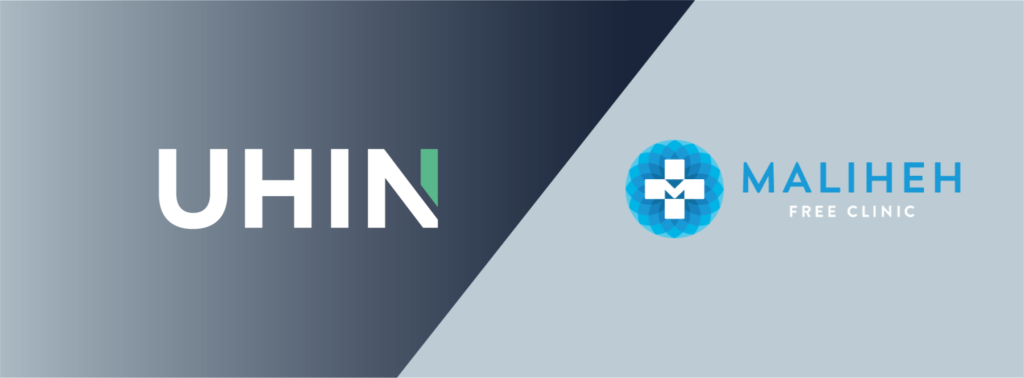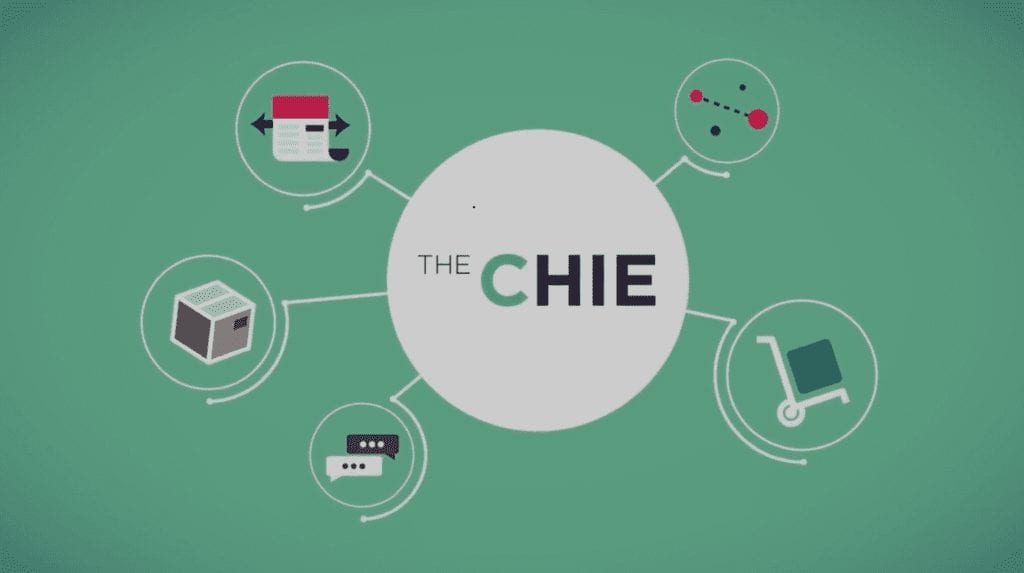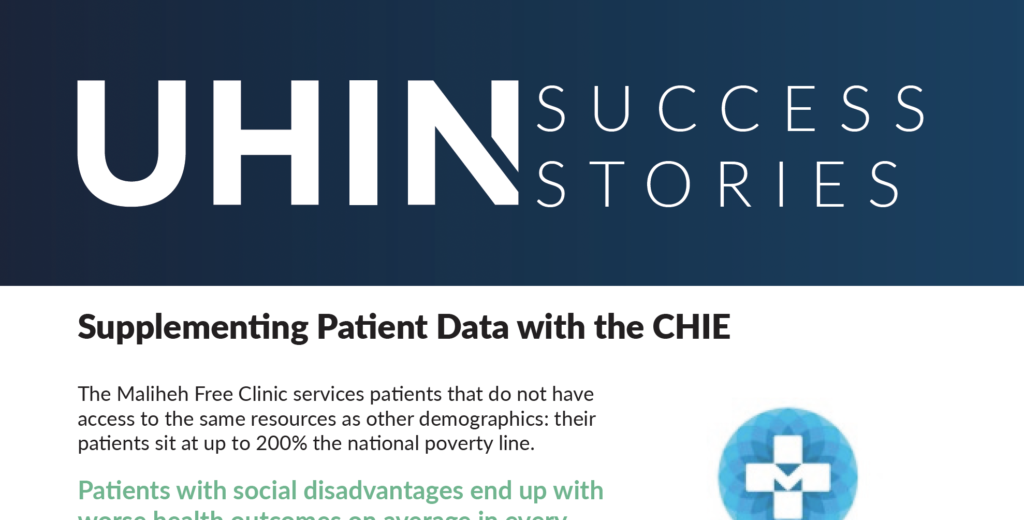The CHIE is an important source of data for Maliheh Free Clinic’s vulnerable patients.
The Maliheh Free Clinic’s patient population is a particularly vulnerable one.
Since Maliheh serves a demographic of patients that sit at up to 200% of the national poverty line, they don’t always have steady access to patient data or even contact information. Their patient population often has limited access to technology, and the clinic itself relies on access to Utah’s two major hospital systems’ EHRs. While this access covers some of their patients, Maliheh staff runs into challenges finding critical information on previous treatment: prescription information, lab results, and other data from other providers and facilities.

With only these tools, Maliheh’s process looks like this:
A new patient with medical data in another system must fill out a Medical Records Request form for each current or past provider. The form is mailed or faxed to each provider, and the patient is evaluated and treated to the best of the clinicians’ ability without previous medical history.
After that, well, the process is a little less clear-cut. Several possible barriers exist at this stage: the form needs to first reach the target provider, and they must actually send back the requested medical information. Sometimes, this requires Maliheh to send the request multiple times to try to get what they need. Once they have the information, staff must then track the patient down so they can provide care- and again, patients may not have steady contact information or addresses, and may have high difficulty in finding time to come back for another appointment. Ideally, Maliheh will provide as much care as possible to the patient on the first visit, but in cases such as these, it’s simply not possible.
Implementing The CHIE to tackle data gaps
In 2018, Maliheh heard about UHIN via an informaticist from one of the Utah health systems. With their small staff (only 12 contracted FTEs), it was going to be difficult to work on integrating a new program into their workflow, but UHIN’s Enrollment Team actively worked with clinic staff to make sure they could get some kind of access to the CHIE, UHIN’s Health Information Exchange tool. The clinic had no extra time to train up any tool experts on their own staff, but UHIN’s team was there for that as well, helping to resolve any usage or technical questions that arose.
Maliheh found that they suddenly had access to patient data and patient matching services for dozens of patients that would have been previously underserved.
As a result of implementing the CHIE as a supplemental data source, Maliheh found that they suddenly had access to patient data and patient matching services for dozens of patients that would have been previously underserved. When a patient’s missing data was in the CHIE, all of the time that their staff spend searching for documentation and trying to send communications could simply be spent providing care to their vulnerable populations. The CHIE was able to help Maliheh avoid long waits for paperwork, lost appointments, and missed care opportunities.
“It’s invaluable to us, it’s like Christmas when we find something in the CHIE. It’s really exciting.”
The CHIE was a solution for the information gaps in Maliheh’s EHR data and their patients’ knowledge of their own care history. With its help, Maliheh is able to provide care to hundreds more patients every year. “It’s invaluable to us,” said Nicole Mohr, Care Coordinator at the Maliheh Free Clinic. “It’s like Christmas when we find something in the CHIE. It’s really exciting.”

Does your organization need access to CHIE data and solutions? Contact us here
To learn more about Maliheh Free Clinic and their mission, visit https://malihehfreeclinic.org
You can also download the Success Story One-Pager here: https://uhin.org/wp-content/uploads/2022/02/Maliheh-Single-page-Impact-Stories.pdf

